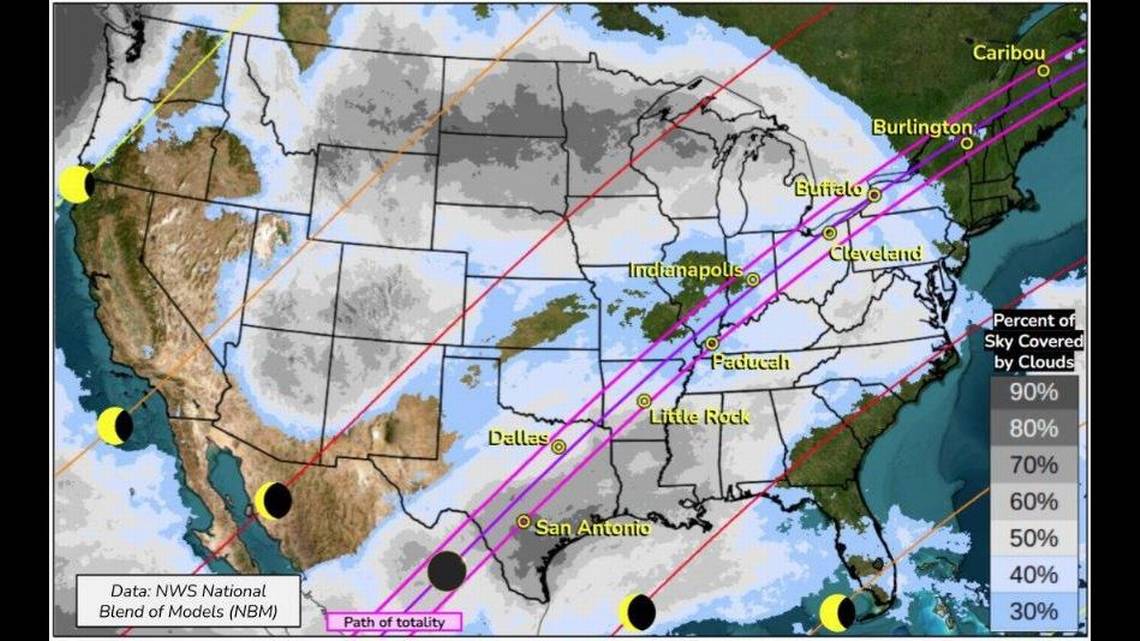“Right now just scattered clouds are expected on the day Monday for those who plan to partake in eclipse viewing,” the National Weather Service in Kansas City said in its forecast discussion. Temperatures will be warm, too, climbing to near 70 degrees.
Unlike August 2017, Kansas City will not be in the path of totality. Instead, the metro area will see only a partial eclipse, with the moon covering about 90% of the sun at the eclipse’s peak shortly before 2 p.m.
People will still need eclipse glasses to look at the eclipse to prevent causing eye damage.
The moon will start crossing in front of the sun at 12:37 p.m. and cover nearly 50% of the sun by 1:19 p.m. The entire eclipse will be over for Kansas City at about 3:11 p.m.
For those traveling outside Kansas City to areas under the path of totality, the weather services suggest you know the forecast before you go.
Northern New England and upstate New York likely will offer the best chances for clear skies. For those looking to stay closer to home, areas from southern Missouri into central Indiana are becoming more likely to have clear skies, according to the weather service’s Weather Prediction Center in College Park, Maryland.
However, there is still uncertainty, said the Weather Prediction Center, which has released daily forecasts for the eclipse on social media.
Areas most likely to have cloud cover impede viewing are from Texas through southern Arkansas and portions of Ohio, northwest Pennsylvania and far western New York, where rain will be possible in and near the path of totality, according to the Weather Prediction Center.
Thunderstorms will be likely Monday evening into Tuesday in the south-central part of the U.S. Severe weather and flash flooding could lead to hazardous travel after the eclipse, the Weather Prediction Center said.
The weather service said people should expect the forecast to change in the days leading up to the eclipse. They should check the forecast for the day of the eclipse and their travel days.
